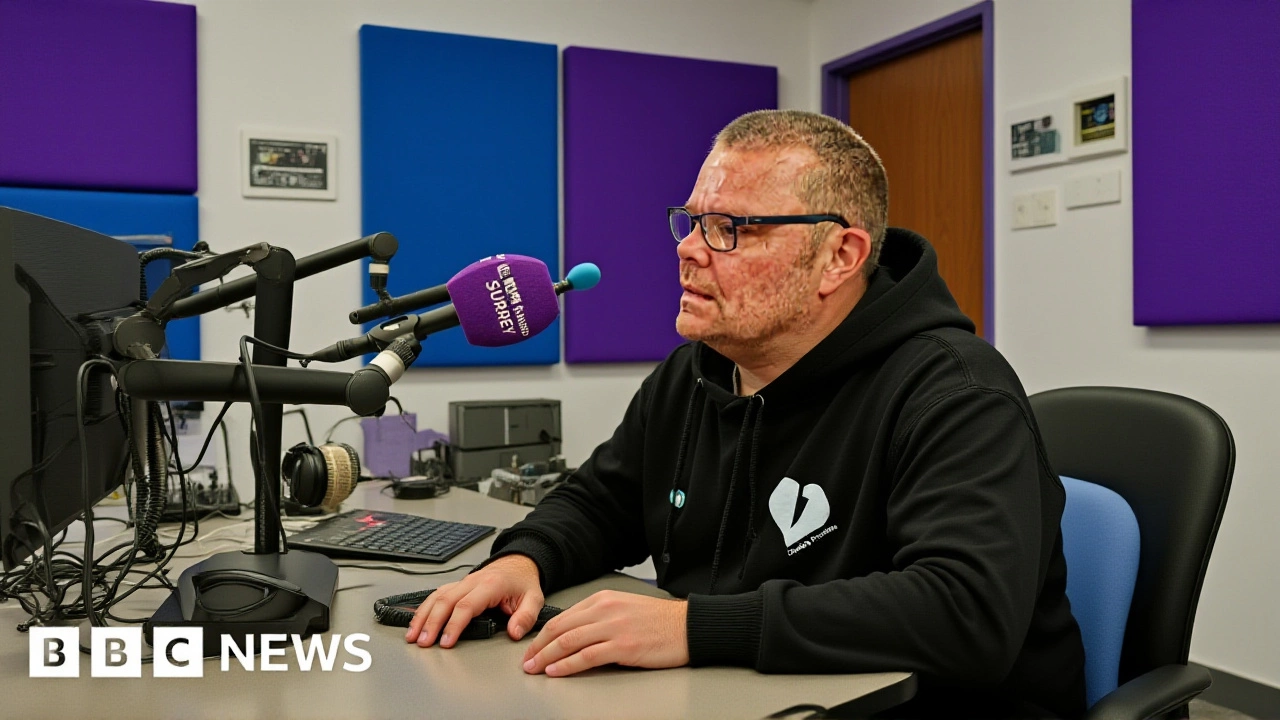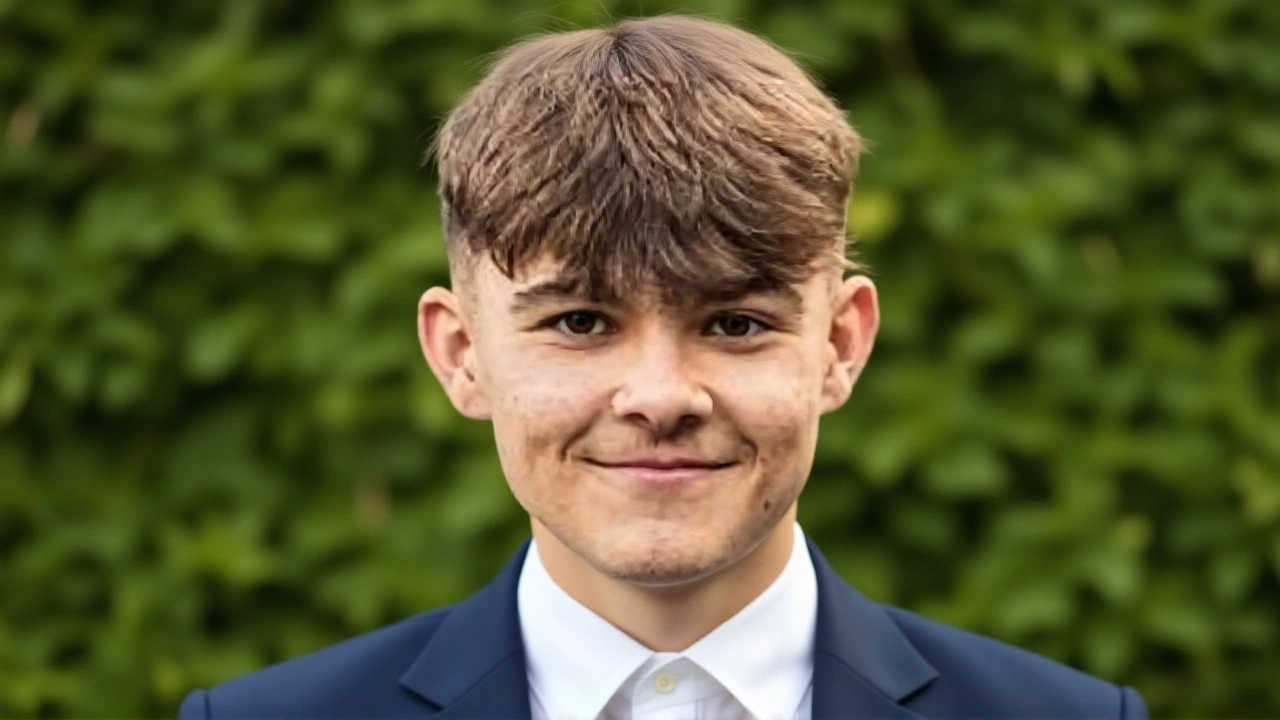On a humid July night in 2023, a house party in Warnham, West Sussex, turned deadly. Seventeen-year-old Charlie Cosser, a talented aspiring groundsman at Chelsea Football Club, was stabbed three times in the chest during a scuffle that erupted after another teen was asked to leave. He died two days later in hospital. His killer, 16-year-old Yura Varybrus, was convicted of murder in June 2024 and sentenced to life in prison with a minimum term of 16 years. The case didn’t fade. It festered. And now, two years later, it’s exploding back into public consciousness — not just as a tragedy, but as a symbol.
What Happened at Warnham House Party?
The party, held near Horsham, was meant to celebrate the end of the school year. Witnesses say tensions flared after a girl complained about another boy’s behavior. When he was asked to leave, things spiraled. In the chaos, Yura Varybrus pulled a knife — a weapon he had no legal right to carry. Three deep stab wounds. Charlie collapsed. He was rushed to hospital but never regained consciousness. He died on July 25, 2023.
The Crown Prosecution Service (CPS) South East confirmed the conviction in October 2025, though they withheld names in their initial release. The court heard how Varybrus fled the scene, discarding the knife in a nearby hedge. No one intervened. No one called for help fast enough. The silence that followed the attack became as chilling as the violence itself.
Charlie’s Dream, His Father’s Promise
Charlie wasn’t just another statistic. He was the kind of kid who showed up early to clean the pitch at his local football club. He’d sketch diagrams of turf drainage systems in his notebook. His dream? To work at Chelsea Football Club — not as a player, but as someone who kept the grass perfect. His father, Martin Cosser, still keeps those sketches in a frame on his wall.
"I just held Charlie’s hand," Martin told ITV during the documentary TikTok: Murder Gone Viral — The Killing of Charlie Cosser, which premiered on October 21, 2025. "I made him a promise. The most important one of my life. I’d spend the rest of my life educating people about knife crime. Not just the danger — the waste. The families shattered. The futures erased."
That promise became Charlie’s Promise, a charity founded by Martin and Charlie’s family. It’s not a fundraiser. It’s a movement. Through TikTok videos, school assemblies, and partnerships with youth workers, they’ve reached over 12 million people. Their message? Carrying a knife doesn’t make you safe. It makes you a target.

The Viral Resonance — And a New Tragedy
On November 1, 2025, exactly two years and three months after Charlie’s death, nine people were stabbed aboard an LNER train bound for London. The attack, which forced an emergency stop at Huntingdon Station in Cambridgeshire, sent shockwaves through the nation. Counter-terrorism units were deployed — but police quickly confirmed no terror link.
What followed was chillingly familiar. Within hours, Charlie’s TikTok video — a 17-second clip of him laughing on a football pitch, wearing his Chelsea hoodie — resurfaced. Millions watched. Hashtags like #CharliesPromise, #EndKnifeCrime, and #JusticeForCharlie trended for 72 hours straight. One comment, shared over 200,000 times, captured the national mood: "Two years on, we’re still losing our children. How many more Charlies before something changes?"
The timing wasn’t coincidence. The ITV documentary, which included never-before-seen footage of Charlie’s last days and his father’s raw grief, had just aired. It didn’t just recount the crime — it forced viewers to sit with the aftermath. The silence. The empty chair at dinner. The football boots still by the door.
Why This Case Matters Beyond One Family
There have been other knife crime tragedies. But few have ignited this kind of sustained public response. Why? Because Charlie Cosser wasn’t just a victim. He was a mirror. His story forced people to ask: Who raised this boy who carried a knife? Who failed to see the warning signs? Why do we treat youth violence as inevitable?
Experts point to a dangerous normalization. Knife carrying among 14–17-year-olds has risen 37% since 2019, according to Metropolitan Police data. Schools report more students bringing knives "for protection." Parents, often unaware, dismiss it as "boys being boys." But Charlie’s death wasn’t a boyish mistake. It was a lethal consequence of systemic neglect.
Advocates like Martin Cosser are pushing for mandatory knife crime education in every secondary school by 2026. They’re calling for community intervention teams — not just police — to be embedded in high-risk neighborhoods. And they’re demanding that social media platforms take responsibility for glorifying violence in memes and challenge videos.

What’s Next?
The government has pledged a review of youth sentencing guidelines, but no legislation has been introduced yet. Meanwhile, Charlie’s Promise is expanding into Scotland and Wales. Their next campaign? A national tour of 50 schools, featuring Charlie’s friends talking about the day he died — and the guilt they still carry for not speaking up.
As for Yura Varybrus? He remains in a young offenders’ institution. He’s never publicly apologized. His family declined all media requests. The silence from his side speaks volumes.
Meanwhile, Martin Cosser wakes up every morning at 5:30 a.m. He doesn’t sleep much. He says he’s afraid if he does, he’ll forget Charlie’s voice.
Frequently Asked Questions
How did Charlie’s Promise start, and what does it actually do?
Founded by Charlie Cosser’s father, Martin, Charlie’s Promise began as a personal vow after Charlie’s death. It’s now a grassroots movement that uses real stories, school workshops, and viral TikTok content to show young people how carrying a knife increases their risk of being stabbed — not protects them. They’ve partnered with 87 schools and trained 200 youth workers across southern England.
Why did the ITV documentary cause such a big reaction?
Unlike other crime docs, it didn’t sensationalize the violence. Instead, it focused on Charlie’s life — his sketches, his humor, his quiet ambition. Martin’s raw interviews, showing him holding Charlie’s football boots, resonated deeply. The documentary’s timing — just before a second major stabbing — made it feel urgent, not nostalgic.
Was Yura Varybrus given a chance to explain his actions in court?
Yes. During sentencing, Varybrus remained silent. His defense argued he acted in panic after being threatened, but the judge called the attack "premeditated in its brutality." No remorse was expressed. His family refused to speak to media or victims’ advocates, leaving a void where accountability should have been.
How has the November 1 train stabbing affected public policy?
The train attack triggered a surge in calls to MPs demanding immediate action. The Home Office confirmed it’s reviewing knife-carrying laws for under-18s and considering mandatory metal detectors on trains during peak hours. But no new laws have passed yet. Charlie’s Promise has demanded that any policy changes include youth voice — not just police input.
Is there data showing Charlie’s Promise is making a difference?
Yes. In West Sussex, schools that hosted Charlie’s Promise workshops saw a 29% drop in reported knife-carrying incidents over six months. Surveys showed 82% of students said the program changed their view on knives. The charity’s impact isn’t just emotional — it’s measurable.
What’s the biggest misconception about knife crime in the UK?
That it’s only a problem in big cities. In reality, 43% of knife attacks in 2024 occurred in towns and rural areas — places like Warnham. It’s not about gangs. It’s about lonely, scared kids who think a knife makes them safe. Charlie’s story proves it doesn’t.
